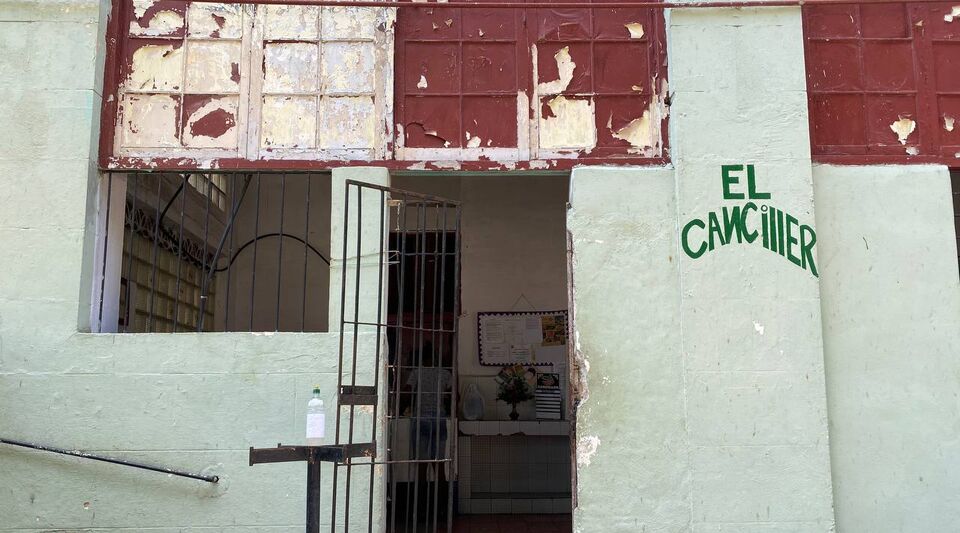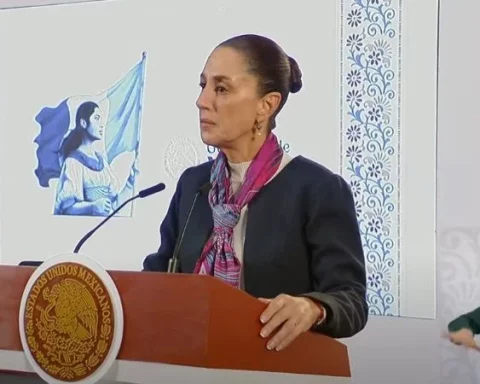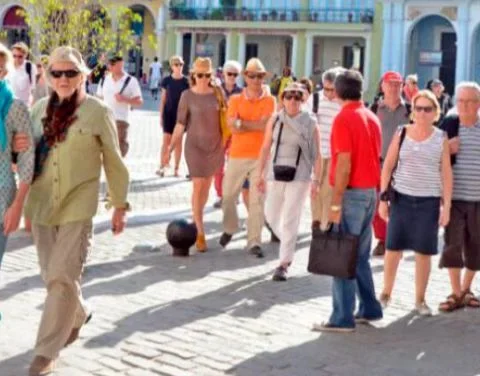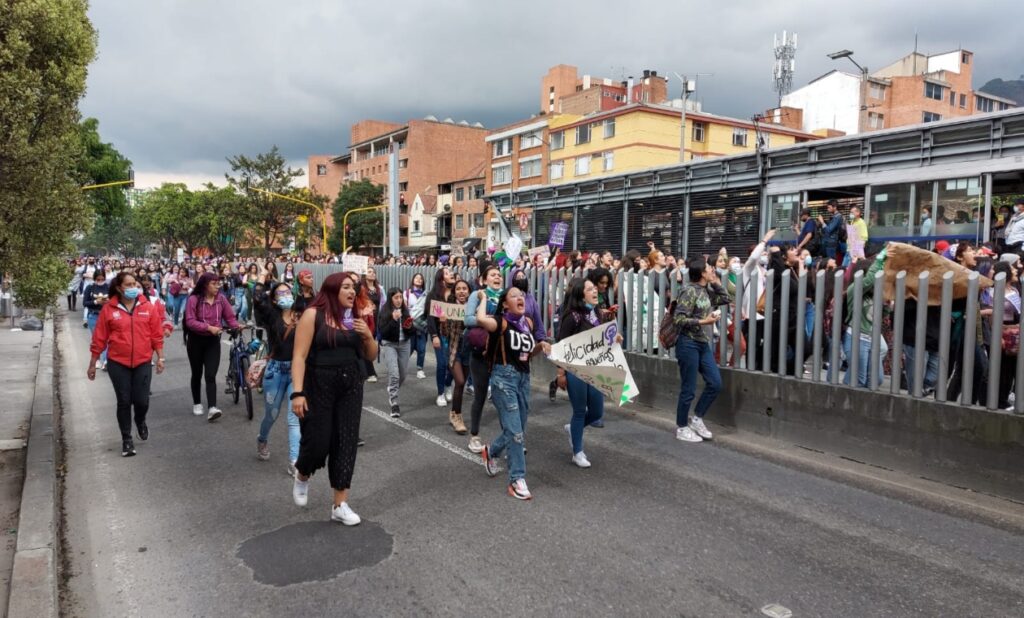Every day at 11 am Osvaldo Napoli, one of the 76,175 registered in the Family Care System (SAF) in Cuba, leaves his building in search of lunch. The 85-year-old man, a resident of the Havana municipality of Plaza de la Revolución, complains about the meager portions and the limited variety of food.
“For several weeks almost every day they give us only rice and peas, without any animal protein,” he told 14ymedio while waiting outside El Canciller, one of the dining rooms set up to give food to very low-income people, located on the corner of Paseo and Zapata, in El Vedado.
Users of this service, most of them retirees, also lament that the preparation of food often lacks spices, oil or something that “adds flavor” to the dishes. The 445 kitchens of this type that exist throughout the Island also receive people with disabilities and other social problems every day.
“Here we always try to provide the best service for them, but we don’t always have everything we need at hand,” explains an employee of El Canciller. “Today, for example, there are eggs at lunch and dinner. It is planned to sell ground beef over the weekend,” he told 14ymedio last Thursday.
The faded color, the small portions and the little hygiene that characterize these places generate more a grimace of rejection than the pleasure of trying it
But the food that is seen from the door does not invite the palate. The faded color, the small portions and the little hygiene that characterize these places generate more a grimace of rejection than the pleasure of trying it. They are the last option for those who cannot even cook at home because of high food prices or physical limitations.
Pascual, 79, lost three fingers on one hand while working on the railway. Now, he lives a few meters from a local SAF on Monte street, where every day he looks for something to eat. He goes with the spoon in his pocket and as soon as they put the ration in the container that he takes from his house, he sits at the entrance of a nearby staircase and eats it right there.
“It tastes almost like nothing, because most of the ingredients are stolen. They steal the fat, they steal the garlic, they steal the onion, and what comes to us is what they couldn’t steal,” he denounces, alluding to the handling that many of the employees of these dining rooms do.
Until two years ago, customers of this service could enter and sit at the tables provided by the facilities, but since the start of the pandemic, food has only been delivered in containers that the customer must bring. A situation that some consider contributes to the diversion of resources.
“Before when they put it on a plate you could at least calculate if they had served you well, but now they put it all together and when you get home you are surprised at how little it is,” explains Pascual. “You can also get scared that something is in poor condition.”
Walking slowly and dragging his flip flops, he arrives at La Maltera de Nuevo Vedado “old Ulises”, as the friends who accompany him call him. The man carries with him a bag with several empty metal canteens because, in addition to buying food from him, he takes food to two of his neighbors who cannot leave their house due to health problems.
On a board that announces “our offers” this Thursday, the option of 180 grams of white rice at 1.65 pesos was read; bean stew for 1.55; fried egg at 2.25 and a small bread for 1 peso. The offer is repeated for lunch, but without the bread and with the boiled egg. In total, a client spends about 12 pesos in a day, about 360 a month.
The sum does not seem high in a country where a pound of rice has recently exceeded 50 pesos in the markets, but many of the SAF consumers have minimum pensions that do not go beyond 1,500 and, as many live alone, they must pay also the electricity of their homes, transportation and other multiple expenses.
It was never one of the best in the world, but in recent months it has lost a lot of quality, and to top it off, all the products they sell since the ordering began”
“This service has declined a lot. It was never the best in the world, but in recent months it has lost a lot of quality, and to top it off, all the products they sell since the ordering began [Tarea Ordenamiento]Ulises complained to this newspaper. “What used to cost cents now adds up to a few pesos.”
He says that sometimes they are eating eggs for several days in a row, but he jokes that with this product “there is no scam.” The man complains that “peas are always about pellets hard that few can chew, the picadillo is pure skin and the croquette is nothing more than flour, like eating bread”.
But he is already “resigned”, he affirms, and the forces are not enough for him “to demand a better offer and more quality in the service”. After expressing his discontent, he sits on a bench with his friends and comments on the news that comes from Ukraine and that he has read in the newspaper, while the canteens are filled one by one.
Despite all the shortcomings, others yearn to be able to eat at a SAF. Zenaida, mother of a son with mental retardation, has spent three years “making arrangements from here to there” to be assigned two places in one of those places. “In Social Security they have told me that my pension is not one of the lowest, because I earn close to 2,000 a month and that my son can work.”
“I don’t care if the options are few, but it would be something that would help me a lot, it would be a support every day,” he explains. “Anything I bring the food for the house and here I add a few little things to make it taste better, but something is something”.
________________________
Collaborate with our work:
The team of 14ymedio is committed to doing serious journalism that reflects the reality of deep Cuba. Thank you for joining us on this long road. We invite you to continue supporting us, but this time becoming a member of our journal. Together we can continue transforming journalism in Cuba.

















